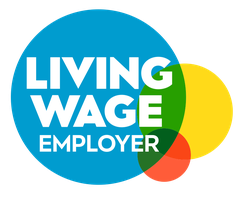The power of culture: Learning about working as a local system to support community businesses

What we learned from this case study
Shared values: the importance of all stakeholders having a common set of values and behaviours to enable collaboration
Empowerment: the importance of giving people and community organisations the freedom to operate at the most local level
Community strength: believing in the strengths and assets of communities
Building community capacity: investing in developing the skills of the community to participate as partners and making the process of becoming a local partner easier and based on a presumption of trust.
Power dynamics: how the Council shared power and responsibility with community organisations
Community engagement: how the Council has embraced being a “listening” Council and made senior decision-makers accessible to local people
Community wealth building: creating a shared economic purpose to use local assets to build local wealth
Scope of the case study
This study was developed from a Community of Practice event with the 6 Catalyst organisations that made up Power to Change Empowering Places programme. The event was hosted in Wigan through the Wigan and Leigh Community Charity and included a Q&A session with the Wigan Council CEO.
The case study was informed through a series of interviews with people who represent different parts of the system of support for community businesses in Wigan.
The case study starts with the insights and reflections from discussions with teams in Wigan starts and ends with reflections from the action learning session that formed part of the Community of Practice session with other catalysts.
1. Key Insights from Wigan Council.
The Community of Practice event was hosted in Wigan because of the journey it has been on as a place to strengthen its relationship with community organisations and to distribute both decision-making and funding to organisations closest to communities. Whilst Wigan describes itself as a work in progress there is much to learn from its journey to date.
Wigan’s story is about trust and about the importance of starting the journey of changing a place by creating a shared culture, values and beliefs in what a community can achieve. It is a story of a new style of local public leadership that creates a deep and authentic connection with communities and gives power to local people to understand and deliver what communities need. It is about empowering people to create their own connections and act locally, encouraging bravery and accountability. It is also about the challenges of building the capacity for change through small community organisations and about creating mutually reinforcing strategies and activities, where there is an alignment of energy and effort between sector leaders.
1.1 Strategic and cultural alignment between stakeholders
Wigan Council talked about putting the community and voluntary sector front and centre of its plans to deliver better services and regenerate the local economy. Starting with the Wigan Deal, the Council has progressively supported local providers in local communities, in the belief that organisations closer to communities will deliver better outcomes for that community and tackle the root causes of demand.
The importance of the Wigan and Leigh Community Charity team having a trusted relationship with both the Council and Community organisations was a consistent theme. The relationship between the CEO of Wigan and Leigh Community Charity, a former Council officer, and key Council members was important in establishing trusted relationships early on and ensuring the charity could access people and information important to the community businesses it supported. The charity was funded initially as the Abram Ward Co-operative through the first wave of investment into the Council’s Community Investment Fund and was part of the journey from the start, enabling community organisations to be more skilled in developing their business, as well as helping the council continually adapt and improve its approach to supporting community businesses through feedback and challenge.
1.2 From grant giving to investment
The Council reflected on the shift they have made in how they make grant awards to community organisations, with a greater focus on future sustainability and impact. At the launch of Wigan Deal the Council created a Community Investment Fund of £1m per year that continued through to the onset of the pandemic. The fund was set up and managed both to put greater focus on creating strong business plans — developing the skills of fund recipients and at the same time to reduce the bureaucratic barriers to accessing funds. The local Catalyst team reflected on the fact that in instilling this discipline, it has enabled businesses to develop important business skills to wider benefit in competing for other funds. This approach is a key part of the strategy to build local community capacity and create a more pluralistic source of funding, for example through social investment.
“The fund is more than simply giving out money it marks a partnership between Wigan council and its community, a co-designed process and an ongoing strengthened relationship. It also has a focus on enabling groups to build in sustainability as the fund can be used as match funding to bring in greater investment into the borough, particularly for those Start- ups and Big Idea projects” The Deal for Communities Investment Fund. Evaluation of the Small & Start Up Investments for Round 4 Evaluation of Big Idea Investments Rounds 2–4
Although modest in size, the Investment Fund played a key role in shifting the dynamic of the relationship between the Council and community organisations from grant dependents to thriving organisations able to share the responsibility of utilising the Wigan pound to deliver better outcomes for communities.
The Council is encouraging businesses to collaborate in seeking partnership bids for funding to build greater capacity and resilience in the community sector. This requires businesses to have the capacity to engage in networking opportunities and build partnerships which we found limited in the smallest of businesses we met.
1.3 Connecting the system at a neighbourhood level
Wigan puts a strong focus on working at a neighbourhood level and teams across the public sector collaborate at this level. This focus on smaller geographic levels of the community seems to enable a more open way of working across sectors where community organisations are closer to public sector teams and are treated as part of the system of service. The Wigan Deal which initiated this more devolved way of working set the tone for all parts of the community sharing the same purpose and working to mutually reinforce the work of others in the system through the different parts of the Deal e.g. Deal for Communities, Deal for Businesses.
The Council were the first in Greater Manchester to pilot a Place Based approach as part of Public Sector Reform. These then became SDF’s (Service Delivery Footprints) where Anchor orgs meet to discuss need at Neighbourhood level (SDFs are usually 3 or 4 Council wards combined, based on geographical location). The VCSE links to these, by SDF officers identifying community need and then asking the VCSE sector if they can support. This approach led to the creation of the Men’s Sheds community business.
1.4 Bringing opportunities to businesses
We heard about the importance of making the act of doing business with local government accessible to smaller businesses from stakeholders across different sectors, both to help people understand how to navigate opportunities commissioned by local government and to keep abreast of changing priorities and initiatives that are relevant to them. In Wigan, Council Officers and Members routinely make themselves personally accessible to businesses and the most senior people in the Council and Members consider it part of
their role to hold direct relationships with community organisations as part of the ethos of being a “listening Council”. There are numerous events that create the opportunity for community organisations and residents to connect with decision makers (e.g. Big Listening Festival, Community Catch up’s, Drop-in’s) and encourage community businesses to contact them directly to discuss ideas and opportunities.
A more recent focus on Community Wealth building is accelerating the growth of opportunities for local organisations to access public funding by prioritizing procurement spending on organisations that are part of the local economy. Wigan Council is making its spending intentions more transparent and accessible by publishing purchasing plans in advance and supporting local organisations to build capacity to compete for larger contracts through partnership and building skills to bid for and manage contracts.
1.5 From intermediaries to infrastructure organisations
Both businesses and Wigan Council talked about the challenge of getting the level of engagement with community organisations right. Based on a recent mapping exercise, there are 640 different community organisations in Wigan, but only 16 of those generate 46% of combined turnover. This presents a significant challenge in engaging and supporting smaller organisations.
Wigan does not have a CVS organisation. The local organisation folded some years ago and attempts to reinstate through support from an adjacent Borough have not provided a sustainable solution. This lack of an intermediary for the voluntary and community sector has meant that the Council takes on some of this role directly and were investing in an infrastructure of networks that connect organisations with shared interests, including social mission and geographic focus. The intent is for the networks to develop self-supporting relationships across community organisations, supported by sector leads, to enable organisations to identify partners and to bring the voice of local business together so they can exert more influence on the external bodies important to the environment in which they operate.
What emerged from our discussions are some advantages with a closer direct working relationship between commissioners and members and the voluntary sector. However, in talking to a small community business, it was also noted that whilst the Council create extensive opportunities for businesses to engage with them, it requires those businesses to take the time to attend numerous events to build relationships and spot opportunities. We also heard that for those without established direct relationships with Council officers and members, the Council could be difficult to access. For the micro-organisations that make up the majority of the voluntary sector in Wigan, having an intermediary to make connections was critical and an important role for the Wigan and Leigh Community Charity across community businesses
The majority of stakeholders talked about the importance of deepening collaboration and one of the most important sources of collaboration are community organisations.
More than Words in Wigan, a community business supporting adults with learning disabilities and autism talked about working with organisations who complement their own skills, for example providing routes to work placements and employment. They also collaborate with other organisations supporting people with learning disabilities to influence the attitudes of the community to create a more positive environment for their customers, for example, doing workshops with school children. Investing in deepening the collaborations that help them to thrive longer-term was a core part of their strategy.
We heard from a regional organisation working in Wigan that sought to act as an anchor organisation for other community businesses by creating supply chain opportunities, using their skills in securing larger funding pots and managing contractual relationships to enable businesses with less experience and resource to access larger opportunities. The same organisation convened voluntary sector organisations to create a collective offer around social prescribing to respond to a new local strategic priority. They regard this role in enabling access to opportunity for smaller organisations as part of their values as a social business and crucial to the viability of small social sector organisations in Wigan.
The smallest business we interviewed was the most reticent, seeing collaboration as a possible competitive threat to securing a more stable source of revenue and lacking the time to invest in building relationships when day-to-day pressures on delivery are so consuming. As the majority of community organisations in Wigan are very small, this may speak to a wider issue about how to create the environment for organisations to build partnerships and find the time to network.
2. Reflections from the Empowering Places Community of Practice
2.1 The Community of Practice
Place Matters facilitates Communities of Practice events for the Empowering Places Catalysts who develop community businesses in:
- Wigan (Abram Ward)
- Bradford — (Manningham)
- Grimsby (Southward, Nunsthorpe and Bradley Park)
- Hartlepool (Dyke House)
- Leicester (Braunstone)
- Plymouth (Devonport and Stonehouse)
They are part of a programme funded by Power to Change and is testing out the ways in which catalytic community anchors in some of England’s most deprived communities can seed community businesses in their places to kick start a virtuous circle that builds social infrastructure for long term impact.
In February 2022, the Community of Practice examined how place-based teams, including the public and voluntary sector work together alongside residents as a “system” to enable community businesses to start up and then thrive.
The reflections in this part of the case study are taken from an action learning session following a Q&A with the CEO of Wigan Council Alison Mackenzie-Folan and David Baxter the CEO of Wigan and Leigh Community Charity. The reflections are shared without attribution.
2.2 Perspectives from the Community of Practice event
Many Catalyst teams described an environment in marked contrast to Wigan, with local authorities putting both bureaucratic and ideological barriers to greater collaboration with community organisations. In one place the catalyst described ideological resistance from a Labour-led Authority to the principle of transferring responsibility from government to the social sector leading to a reduction in funding.
Another Catalyst talked about the destablising impact of a change in local government procurement practice where grant funding had been replaced by contracts, creating a climate of competition over collaboration. This was seemingly in marked contrast to the experience in Wigan where changes in the basis for funding were done incrementally and with the aim of bringing mutual benefit to build the skills and capacity of the sector.
Other catalysts talked about the challenges of enabling communities to influence those in power, bringing local voices closer to local anchor organisations, whilst avoiding centralising power through sector intermediaries that can hold organisations at a distance rather than create richer connection. Creating an effective balance between direct relationships and organisations being supported by an intermediary was topical for many places.
One Catalyst focused on how to build consensus for collaboration and resource sharing across multiple social sector organisations all working to support young people to enable them to build stronger local services. With diverse funding and different accountabilities and forms of governance, coming together into a tangible partnership able to make strategic decisions to invest in resources is a significant challenge, although there are examples in artnerships such as the Plymouth Alliance.
Several catalysts talked about the need for better evidence to convince local stakeholders of the benefit of investing in community organisations. Wigan believe they have made this case in a compelling way demonstrated by a lower level of spend on services like adult social care than comparable authorities and consequently overall lower levels of Council tax. It was agreed that strengthening the evidence of value is critical to growing the social economy, particularly in places where the prevailing culture mitigates against strengthening the community sector.
Conclusions
The prevailing view from the catalysts, despite the challenges experienced locally by many, is that investing in systems-level partnership is essential to creating a thriving social economy. Places like Wigan show the value and importance of creating a unified culture across sectors and an equality of relationship between them.
Initiatives with similar intentions like a more commercial approach to distributing funds can result in very different outcomes where benefits are not mutual. Our overall reflection is that whilst there is wide consensus of the potential value of partnership across sectors and within places, it relies on shared values and ethos rather than evidence. The responsibility for making the case lies with all partners, but it is in the interests of the social economy to strengthen the arguments to secure both quality of funding and a role as community leaders.

